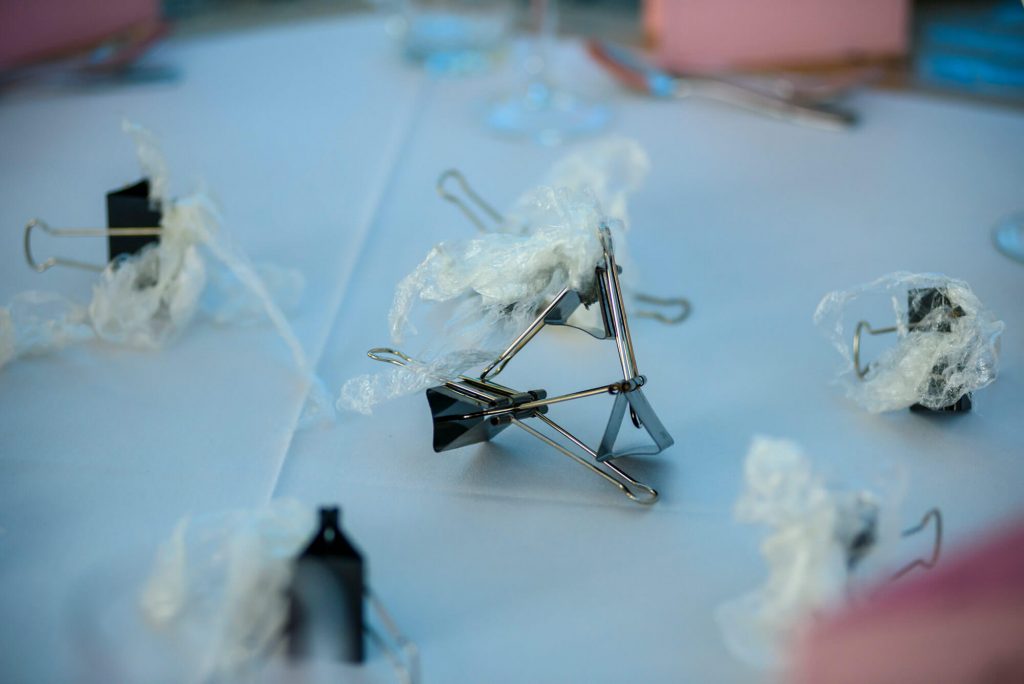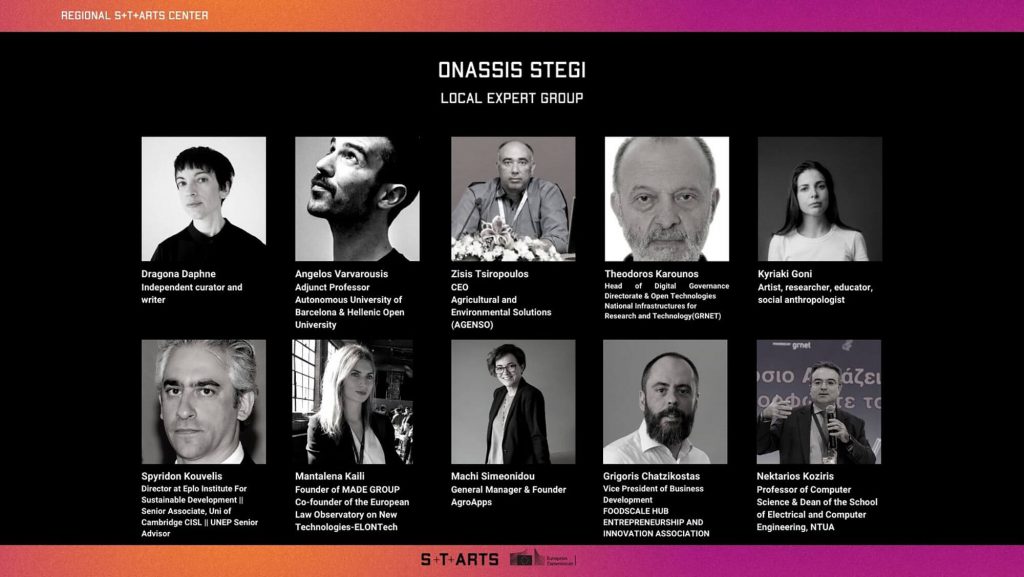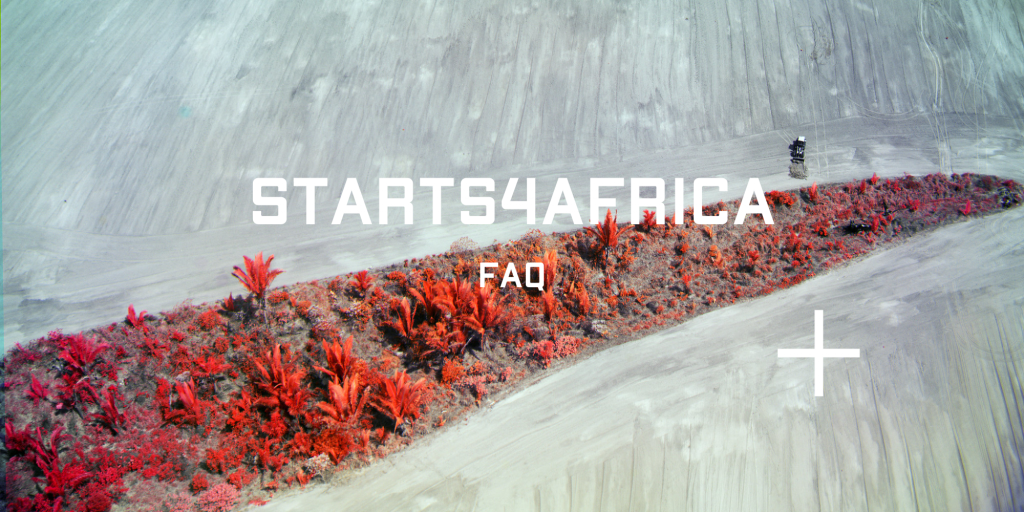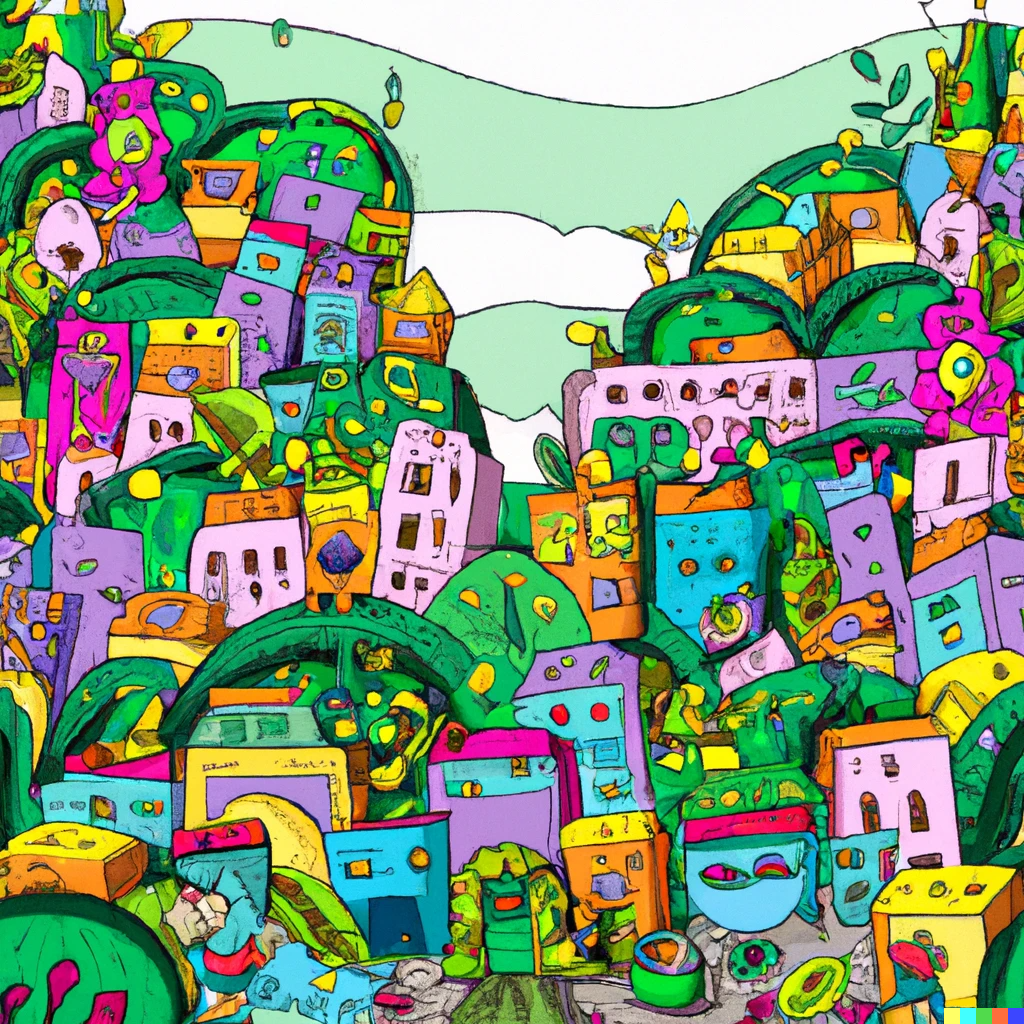S+T+ARTS Regional Centers | Repairing the Present
Virtuous Circles: Schools as Catalysts for Sustainable Neighborhoods | Challenge nº12
How might we engage school communities with the practices of a circular economy both locally and globally by encouraging innovative design thinking through the use of advanced technologies, participatory creative research, storytelling, and contemporary artistic media?
Consortium Partner: Onassis Stegi
EU Green Deal:GD8 Mainstreaming sustainability in all EU policies
Problem Statement
Currently, circularity is gaining ground as an inevitable choice. We aim to galvanise awareness within our educational structures, as youth are the heirs of this system, by fostering the investigation of new models of participation on environmental issues, focusing on circularity, transforming our habits and our communities.
Keywords
Youth empowerment, Circular policies, Prototyping – Design thinking, Peer-to-peer/Collaborative practices, Open modular design/technologies
Challenge Context
Due to a prevailing profit-driven economy, unofficial and unjust waste management networks are established creating a “black box” on the life cycle of materials when it comes to littering and waste. Overtourism and high fluctuation of habitats in combination with the insufficient infrastructure contribute to resource-stress on the energy-water-food-employment nexus in Greece.
As circularity emerges as a solution in both societal and economic constructs, we explore the ways to develop or stimulate circular practices and habits among youth in the educational environment who will transform habits and communities. What is the role that art and technology could play in this transition? How we might re-invent our relationship to design, production & consumption?
Sustainability is increasingly an issue for the younger generation’s future and teenagers are starting to mobilize, usually in form of demonstrations. However, there is not an organized structure inside the Greek educational system that supports awareness of climate issues, and it seems to be left to the individual teachers’ initiatives.
Our key methodological tool is the initiation of what we would call Virtuous Cycle Sprints: these will include working with artists & educators, the local expert group and a minimum of three model schools (protypa) in order to develop and initiate a curriculum and a series of student projects.
We would like to encourage creative solutions from the schools, in the neighbourhoods, that employ innovative design thinking, use of advanced technologies, participatory creative research, storytelling, and contemporary artistic forms/media for a transition towards a circular future.
Fellowship Characteristics: network, opportunities, and expectations
We are looking for an artist to develop a format for schools that could contribute to the understanding and awareness of circularity and the design of rapid prototypes within the educational system. This format should innovatively combine artistic media (especially new media), research and data gathering activities by the students in a way that can be applied by the schoolteachers in multiple settings and result in projects that can be presented to the public. ‘Training the trainers (teachers)’ is an integral part of this process.
We expect the artist to:
a) Work with educators from selected public schools to develop and present a collaborative project with students.
b) Prepare a toolkit or lesson plans addressed towards educators that wish to replicate the methodology in their own school.
c) Offer minimum 5 training sessions for educators on how to implement the toolkit or lesson plans.
d) Develop a series of pilot projects by the students
We believe that transformation needs communities and thus, we consider it important to keep in mind the role of stakeholders in tackling this challenge. People that should be involved, included or inspired, people you can meet, learn from and be guided by:
- Core: Schools students, Educators-Teachers
- Direct: Parents Associations, School Board, Municipality representatives
- Indirect: Local Citizens, Neighborhood citizens initiatives, Local-small scale businesses
The artist is expected to travel to the region to attend S+T+ARTS academy events, workshops and activities or to conduct field research at least 4 times during the fellowship period and should include the travel expenses in the budget plans. Through the residency, Onassis Stegi will offer the artist professional facilities and support artistic development, networking, research, and the production of new works. The artist is expected to collaborate with local teachers/and artists and should foresee a fee for the local collaborators in the budget plan.
We expect the artist to show a willingness to collaborate, exchange and experiment and to agree to showcase the final outcome in the framework of the S+T+ARTS program.
Jury Day(s)
Jury day will be: digital
Jury day will be held between 13-19 January 2022 (TBC)
Useful links
- Butterfly Diagram – Circular Economy
- Circularity Deck – A Circular Economy Tool
- Circularity Deck- Miro Board
- Linear To Circular Program– Ellen MacArthur Foundation
- Circular X – Circular Economy Tools
- Teaching Resources– Ellen MacArthur Foundation
- The Circular Design Guide- Resources
- WEF- Strategic Intelligence ‘Circular Economy’
Case Studies
- Dismantling Tools (GR): Mobile spaces of encounters & learning
- Mikro Dentro (GR): – alternative educational initiative
- Mikros Dounias (GR): Intercultural pedagogic initiative
- POIO (GR): Makers Space Municipality of Athens
- Circularity Gap report
- SitrA (FI):Circular Economy teaching
- Bio & Circular (FI): Global Growth From Bio And Circular Economy



